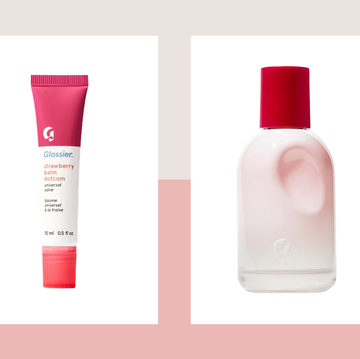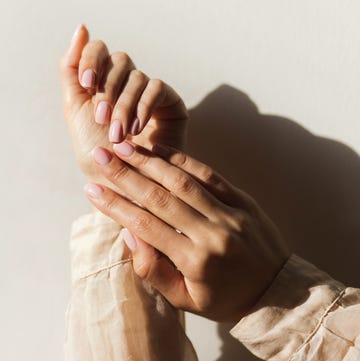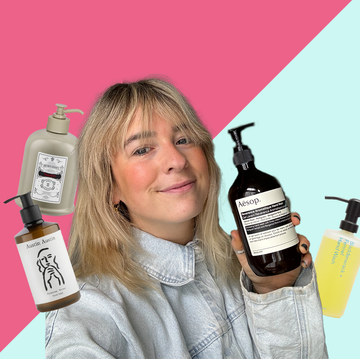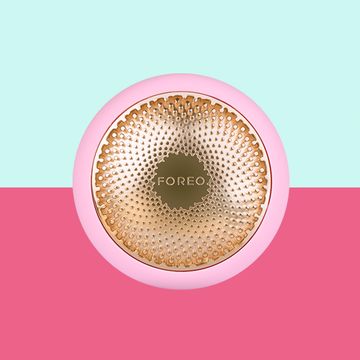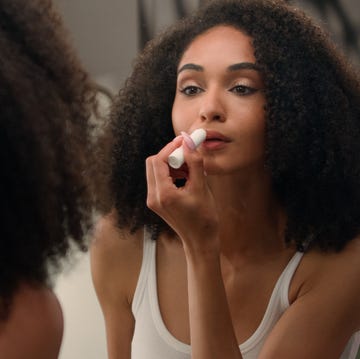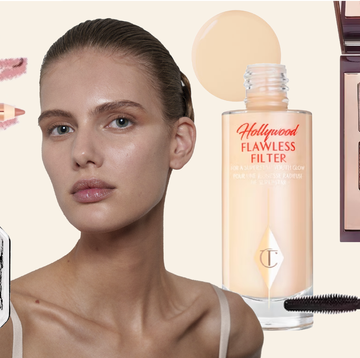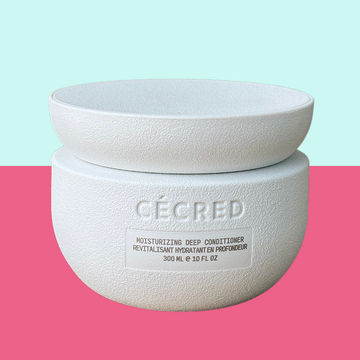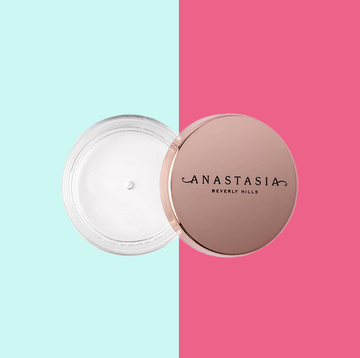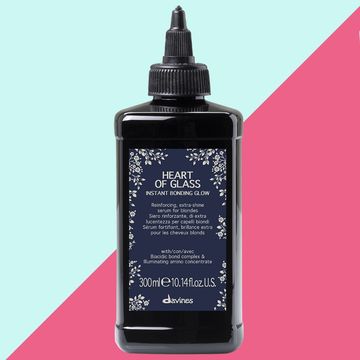February 2014. Hot tears were falling into my pasta bake. Aged 16, it was my favourite dinner, although that night I couldn’t eat it. I had been to a GP appointment with my mum about a lump in her tummy that had appeared over Christmas. It had got so big we could see it, round and bulbous, protruding from her willowy frame, and I knew in my heart there was a reason to worry.
Love Good Housekeeping and want more of our Triple-Tested recipes, home tips, fashion inspiration, essential consumer advice and so much more delivered to your inbox? Sign up to our FREE weekly newsletters, sit back and enjoy!
A few months later, my mum was diagnosed with cancer: a rare form of sarcoma, called GIST. It would require lengthy surgery to remove the tumour, as well as partial removal of other organs for safe measure (colon, spleen, gallbladder, stomach and pancreas). The cancer was both rare and aggressive, which meant that she’d be on daily oral chemotherapy for life. There were the obvious side-effects of cancer treatment, such as nausea, fatigue and oedema, yet very quickly another side-effect appeared, just as debilitating, but one we’d thought – or knew – little about: extreme skin sensitivity and dryness.
Visits to see my mum in hospital revealed that she wasn’t alone in this. She shared wards with people whose treatment made their skin peel in layers, hot, raw and angry underneath. My feelings of helplessness at the time were all-consuming. There was so much I couldn’t do for Mum to ease her suffering, but I thought at least I could bring her favourite cleanser to the hospital, for a touch that wasn’t medical or probing and a product that smelled like home. It felt cruel, then, that there was no moment of enjoyment, because her skin burned as soon as the cleanser touched her cheek.
What followed was a period of dermatological trial and error – at a time when my mum’s skin became so fragile that every error was costly, causing more discomfort. It’s only now, as a beauty writer, that I can get a handle on what works for my mum’s skin. But what about skincare help for those who don’t have a beauty writer in the family?
‘The level of understanding your oncologist will have about skin side-effects really varies,’ says consultant dermatologist Dr Kara Heelan. ‘There’s more of an understanding for those on commonly prescribed chemotherapies, but when drugs are newer, there’s less.’
Dr Justine Hextall is a consultant dermatologist married to an oncologist. She tells me: ‘My husband would often come home and tell me that he was dealing with patients who had very chronic skin side-effects, and he simply didn’t have the tools to treat them. We’d work together and I’d advise on some basic principles to alleviate these symptoms. The most interesting thing to happen after working together was that patients could continue their treatment. Quite often, if you don’t know how to treat the skin, you have to reduce the dose or stop treatment entirely. The right advice and care for your skin is often the difference between continuing your cancer treatment or not.’
Whatever the type of treatment, establishing a good routine before it starts means skin is in a better position to tolerate it. What does that look like for sensitive skin? ‘It will include as many gentle, hydrating, fragrance-free products as you can get your hands on, ideally with as few ingredients as possible,’ says Dr Hextall. ‘Your skincare should try to mimic a healthy skin barrier. Look for ingredients such as ceramides, glycerine, hyaluronic acid and shea butter – anything that draws moisture back into the skin.’
And for skin that’s peeling, raw or particularly sensitive? ‘Keep a “rescue cream” on hand,’ Dr Hextall advises. ‘La Roche-Posay Cicaplast Balm is great, and has a Macmillan stamp of approval to say it’s good for chronically sensitive skin. It’s particularly beneficial for areas that are feeling chapped and burned from treatment such as radiotherapy.’
On the whole, both Dr Hextall and Dr Heelan recommend French pharmacy-style brands, such as La Roche-Posay and Avène. I understand, though, why Mum initially wanted to use ‘natural’ products only – surely something non-artificial, something derived from the earth, would be better for her skin? ‘I hear this belief a lot in the clinic, and it’s an understandable one,’ says Dr Hextall. ‘People start to look for answers – lifestyle factors that might be responsible for their illness. But when it comes to skincare, the issue is that “natural” and “organic” are nebulous terms. Things such as essential oils, which are often found in these types of products, are actually common sensitisers.’
Chemotherapy has kept my mum alive for 10 more years, and now – thanks to experts such as Dr Hextall and Dr Heelan – I know better than ever how to care for her skin. Life is good. Happy. But cancer is unpredictable. Two years ago, she had a recurrence in her liver. I picked her up from the hospital after yet another operation and sat with her, waiting for the nurse to arrive with her discharge notes. A touch of Cicaplast Balm over Mum’s chapped lips said we were leaving together. That was always the hope.
• La Roche-Posay has partnered with Macmillan Cancer Support to offer help for those facing skin side-effects of cancer treatments. Visit the La Roche-Posay website to book a complimentary skin consultation to help care for sensitive skin
Best soothing buys for stressed skin
SOS SPF50 Moisturising Protecting Sun Cream
Nonsensitising, mineral-based sun protection.
La Roche-Posay Cicaplast Spray B5
Spray-on sore skin relief for skin too sensitive to touch.
Avène Tolérance Extremely Gentle Cleanser
Fragrance-free and no need to rinse, for a comfortable cleanse.
By Sarah Maven Daily Moisturiser
Squalane and panthenol strengthen a compromised skin barrier.









